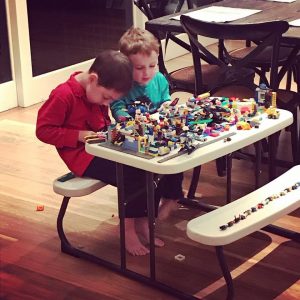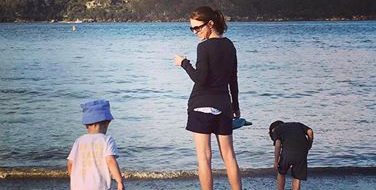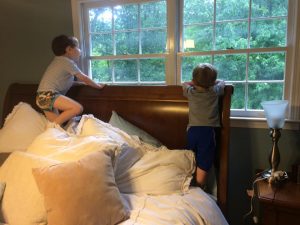 I have the same conversation periodically, and with so many of my friends: “Are we drinking too much?”
I have the same conversation periodically, and with so many of my friends: “Are we drinking too much?”
It echoes that query, which was also an episode title, from Sex and the City: “Are we sluts?” My memory these days is poor, but I’m pretty sure the conclusion they reached was “No,” which sounds pretty self-serving and possibly inaccurate, looking back, but who am I to judge (fictional characters)?
The question my friends and I ask ourselves is not going to be solved in thirty minutes of “I couldn’t help but wonder” surface-level introspection. It’s an ongoing question. And when we really start looking into it, we know it’s not about alcohol anyway.
At any point in my life, the question could have been asked with the word drinking replaced by something else: Am I gossiping too much? Am I sleeping around too much? Am I depending on caffeine too much? Am I starving myself too much? Am I keeping myself overbooked too much? Am I posting on social media too much? Am I watching TV too much?
We do ourselves no favours if we make one vice a scapegoat for the deeper problem.
This is not to say that specific physical addictions do not exist, or should not be treated. It is, instead, a recognition (an often-flailing attempt at one, at least) that so many of our issues or abuses or troubles come from a singular place, a place of brokenness that is born of not feeling a sense of belonging.
It is excruciating to believe we are alone–especially to believe we are suffering alone. Most of the lies I’ve bought into in my life, and the behaviour borne of those lies, have come from that one: that there’s no place for me. That I am an other.
It is a fear that plagues me and always will. It is a fear that plagues me on behalf of my children–this fear of not being liked or accepted.
Last week, The Kid and Little Brother returned to school after a long holiday weekend plus a couple of extra days thrown in. I steeled myself for their reluctant re-entries: for LB’s clinging to me, rendering me the mother who has to walk away from her crying child and feel like shit in the process. Guilt upon guilt. We arrived at his school and he looked around. He grinned. He asked his teacher for a story. He found his spot on the sofa.
TK and I headed to his school, to his leg of the separation train. As we entered the grounds, his pace picked up. “H is the leader of the game, and I’m the second leader,” he announced to me confidently, preparing for his return to the lava monster festivities. As soon as we approached the other kids, my familiar emotional turmoil returned: what if they’re too rough for him? What if he gets anxious and clingy? What if he can’t find his place? Fear upon fear.
Instead, a friend ran up to us. “I missed you, James!” he exclaimed. Another ran to him for a hug, and another grabbed his hand, saying, “Want to play the game?” His smile stretched from ear to ear, from one side of my fragile heart to the other. “See?” a voice called grace whispered to that heart. “I’m already here. I’m already everywhere.”
A friend and I talked later, about how we parent from guilt. Also–we live from brokenness. From the places where we’ve been wounded, from the needs that were never met. We try to measure up. We try to bridge the perceived gaps. Very often, we use shitty building materials: things that work as hobbies or passing interests or by the glass rather than the bottle, or the mug rather than the pot.
We’re all screwed, is what I’m saying. We’re all doing it–something–wrong. WE’RE ALL EATING TOO MUCH SUGAR.
What if, though, the first thing we did rather than engaging in the shame spiral, or reaching for the distraction, or beating ourselves up, was to just stay in the particular moment that haunts us: the hangover, the high, the sadness–and realise this: that we are loved? That there is a place for us?
I’m just spitballing here, but I don’t think we just hurt ourselves when we aren’t honest about our wounds; we hurt others. We take our fear of “otherness” and extend it past ourselves, turn people we don’t even know into “them” as if that will heal us. We steel our souls. We put up walls and place our salvation inside them.
Meanwhile, the voice whispers: “There is a table where there’s no such thing as too much. You have a seat there. And I am there. I am everywhere.”








